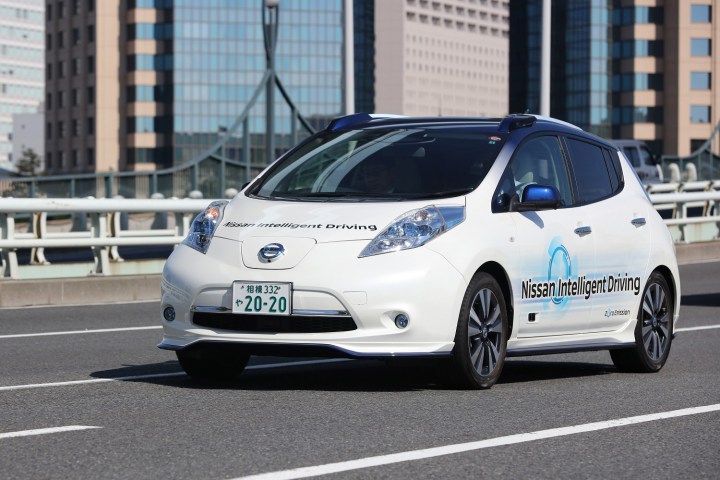
The two partners stopped short of confirming which models will get their self-driving technology, but they promise that every single one will be a mainstream, mass-produced model sold at a relatively affordable price. In other words, Nissan isn’t looking to move up a notch on the market and go toe-to-toe with luxury players like Mercedes-Benz and BMW.
The 10 cars will be aimed at major markets including the United States, Europe, Japan, and China, and the technology will be rolled out in stages. This year, Nissan will introduce a feature called single-lane control that will enable a car to drive itself on the highway and in dense stop-and-go traffic. The company will also launch a new smartphone application that will enable motorists to remotely interact with their cars, though more specific details haven’t been provided yet.
The next stage will come in 2018 when the alliance brings multiple-lane control to the market. As its name implies, multiple-lane control is an evolution of single-lane control that lets a car change lanes on its own to pass or to avoid an obstacle in the road. The technology will only work on the highway, where the lanes are generally wide and clearly marked. That same year, Renault-Nissan will also introduce a new platform called Alliance Connectivity & Internet of things that will run a Virtual Personal Assistant.
Finally, the intersection autonomy feature that will be introduced in 2020 will give a car the power to drive itself at lower speeds, including in crowded urban centers. Nissan stresses that the driver will be able to take over at any time, meaning the car won’t be entirely autonomous and it will still be equipped with a steering wheel and pedals.
Renault-Nissan isn’t the only car maker developing self-driving cars, but it’s one of the few that’s dedicated to bringing the technology to the masses.
“Renault-Nissan Alliance is deeply committed to the twin goals of zero emissions and zero fatalities,” explained company CEO Carlos Ghosn in a related statement. “That’s why we are developing autonomous driving and connectivity for mass-market, mainstream vehicles on three continents.”
Nissan recently started testing an experimental self-driving Leaf in its home country of Japan, but the company hasn’t revealed when its first regular-production autonomous car will hit showrooms.



